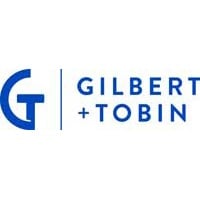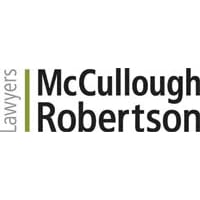

Group general counsel | Smile Solutions Group





Marnie Manning
Group general counsel | Smile Solutions Group
Executive general counsel | Olivia Newton-John Cancer Research Institute
Yes. These include new laws regarding use of intravenous sedation and general anaesthesia, new day procedure centre regulations, information privacy and the notifiable data breaches regime.
Less impactful changes include various employment law reforms, changes to Australia’s skilled migration programme, the proposed phase out of Australia’s innovation patent system and the removal of IP exceptions to our competition law. There is also a review of the dentistry scope of practice registration standard (which has potential implications on insurance) and increasing calls for reform of Australia’s public funding scheme.
We implement significant compliance checks and gatekeeping measures through bespoke customisation of existing clinical management programmes including Centaur Software’s Dental4Windows. This works well because it fully integrates compliance into daily clinical practice and avoids staff having to become familiar with additional software or new processes. We use Kronos’ Workforce Ready to track time spent on matters, and for key metrics relevant to legal’s resource allocation across the group, comprising approximately 40 entities. Slack is also used to manage project work and other cross-functional initiatives.
We’ll be looking to implement new technologies in the near future as we embark on a broader legal operations review. We intend to look at legal tech and beyond – to healthcare technology and technology used in other sectors.
Being clear in setting expectations. Responsiveness, and having external counsel who are able to run with the business at the same pace are important to me. Willingness to engage in developing innovative means in key areas, such as ensuring we have access to “quick answers” when needed and access to high quality technical skills development initiatives are also important. Investing time in ensuring external counsel understand your business, future plans, and the strengths and challenges of the legal function creates greater opportunities for them to value add.
Invest in and practice mindfulness, develop an ability to critically examine your inner narrative – a skill that I wish I had started developing earlier in my career. Develop an adaptable communication style and a user-centric approach to legal service delivery. See the humanity in your colleagues and peers, and have confidence to never tolerate any situation that compromises your values.
The profession is experiencing an important period of revitalisation. As we begin to think beyond operational considerations of legal transformation through the use of technology, there remains a significant opportunity for us to consider more deeply, human relationships in legal service delivery and the ethical footprint we leave behind.
How we deliver legal services is not merely a professional development concern, it is an ethical concern. We can draw upon developments in healthcare and medical ethics to inform us here. Professor Paul Komesaroff has contended that ethics is not only concerned with dramatic questions, such as euthanasia and autonomy, but that ethics happens in every interaction between doctor and patient. These interactions are intrinsically ethical, rich with an infinite array of what he terms “microethical” content. The same can be said for legal practice. Whilst technical knowledge is foundational in our work, how we shape and navigate relationships is inextricably linked. The legal ethics literature, while immensely important and valuable, remains predominantly concerned with conventional topics, such as conflicts of interest and legal professional privilege. As a profession, we are yet to embark on deep consideration of our human/client interactions per se.
The relationship of trust we hold with our clients is built in part on a knowledge imbalance. How we frame legal problems and solutions deliver a narrative with potential biases that are likely undetectable to our clients, particularly in complex or ambiguous matters. To think that our clients do not draw meaning from our reactions, our expressions, our nuanced responses, and our choice of language ignores the inherently ethical nature of our day to day practice and the social context within which we operate. We influence, by our manner of being, our clients’ understanding of whether our message is liberating or limiting. This can fundamentally shape the course of matters and hence impact the interests of our clients. I urge that we explore new ways to more meaningfully contribute to, even ethically enhance, the quality of our service delivery.
Kindness is no cure for resolving the challenges, ethical dilemmas and complexity of our nuanced human relationships. Those solutions are to be found, hopefully, in a new and emerging body of legal ethics literature in the future. But for now, kindness is a simple tool we all already know how to use that can enhance our human relationships. Kindness is not a soft, sentimental feeling. Medical research demonstrates that the impact on the brain from receiving kindness includes releasing endorphins and oxytocin that activate all learning centres in the brain. Intelligence, creativity and energy levels all rise, and significant increases in productivity have been reported.
So, how to practice kindness? Perhaps we simply need to remind ourselves to see the person. Medical practitioner Dan Crowe reminds himself that everyone is valuable, and looks for ways to communicate that message to his patients – the message that they are valuable as a human being. Harvard qualified psychologist Shawn Achor suggests writing one positive message acknowledging someone each morning. He says we can also train our own brains to become more positive in just 21 days, by writing down each day, three things that we are grateful for, and journaling to relive positive experiences. The brain starts to retain a pattern of scanning the world to see the positive first, not the negative.
But is the practice of a few kind acts every day truly impactful? Research suggests that it can be. One project, directed at changing the culture of Indiana University’s School of Medicine, showed that small changes in behaviour, in this case, reminding people of positive elements of their faculty experiences, can spread quickly and widely, transforming not only individual behaviour, but also organisational patterns of thinking, interacting and culture.
To borrow from Anna Lozynski, “… start small, but think big”.